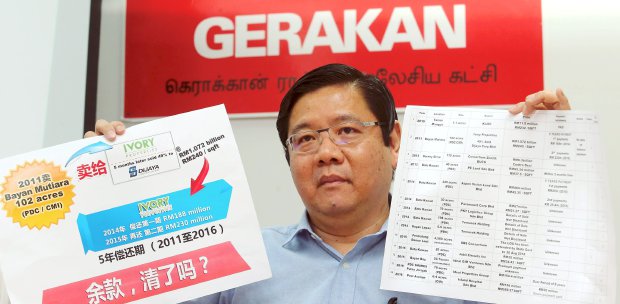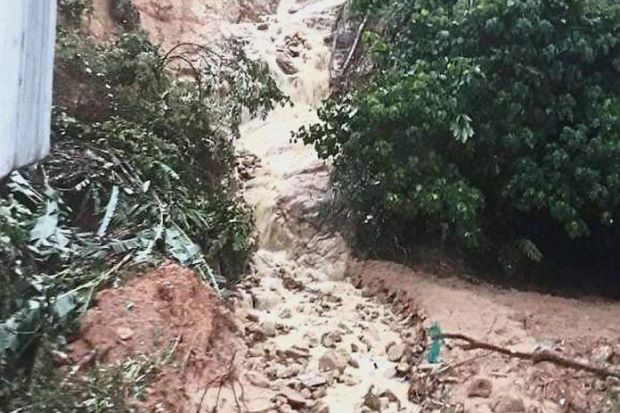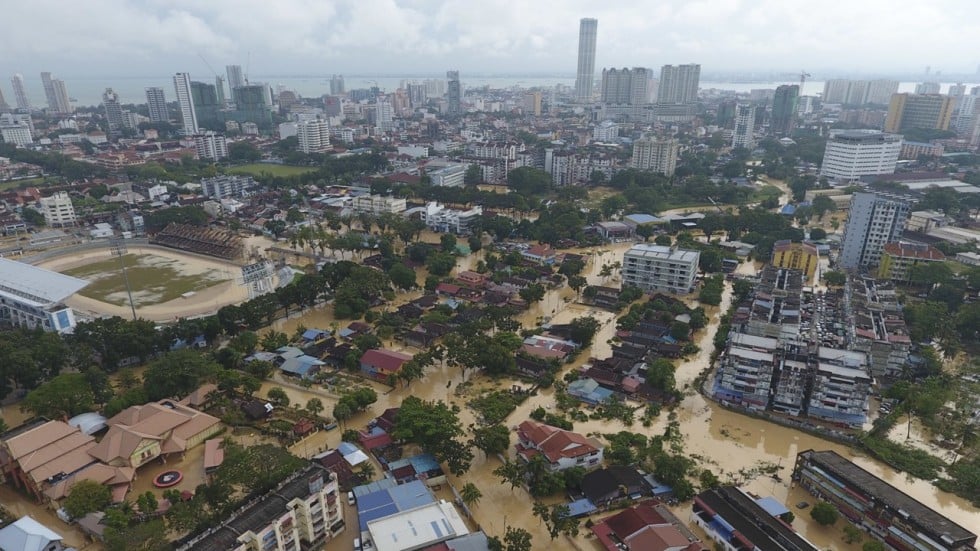 |
| Our Environment is Our Life - YouTube |
THE year has barely started, and already we have so many reports of weather and climate-related events.
Heavy wind, snow storms and below-freezing temperatures paralysed cities in the United States’ East Coast. New York’s John F. Kennedy International Airport was in chaos with hundreds of flights suspended.
Yet, just weeks previously, big fires linked to a heat wave were sweeping through parts of California on the West Coast, burning 112.000ha of forest and threatening lives and homes.
Colder weather in one place and hotter temperatures in another are signs of global climate change, which can also cause heavier rainfall and drought in different regions.
While it is difficult to pin down any particular incident as a direct result of climate change, it is recognised scientifically that climate change generally exacerbates extreme weather events and may cause some of them.
We can expect the weather, and more broadly the environment, to figure prominently this year.
The alarm bells sounded long ago on the environmental crisis. But it is not easy to achieve a continuous high level of concern among political leaders.
After a calamity and public outrage, there are pledges to correct the situation. However, the interest fades after a while, and not much action is taken, until the next disaster happens.
In Malaysia, people are now looking at the sky constantly to anticipate whether it is going to rain.
Heavy rainfall has been causing floods in Kelantan, Terengganu, Pahang, Johor, Negri Sembilan, Kedah, Selangor, Sabah and Sarawak.
In Penang, severe state-wide flash floods seem to be occurring every few months, with localised flooding in several areas in between. The mud brought down from eroded hill-slopes into overflowing rivers and then into houses, makes floods an even worse nightmare for those affected.
For some unlucky ones, hardly have their houses and furniture been cleaned than they are under one metre of water again through a new flood.
Heavier rain and more floods is the new normal in Malaysia. There has been an increase in rainfall for most parts of the country in 2000-2009 compared to 1970-1999, with the major increase in 2005-2009, according to a 2012 paper by Yap Kok Seng, then the head of the Malaysian Meteorological Department (MMD), and his colleagues.
The global temperature increase has led to changes in weather including major wind patterns, amount and intensity of precipitation, and increased frequency of severe storms and weather extremes, according to the paper, Malaysia Climate Change Scenarios.
In Malaysia since the 1980s, there had been increasing number of days of extreme rainfall events, extreme wind events and annual thunderstorm days, added the paper.
Unfortunately the situation will worsen. A study published on Jan 10, whose authors are affiliated with Germany’s Potsdam Institute for Climate Impact Research, predicted that millions more people will be affected by river flooding as global warming increases severe rainfall in the next 20 years.
In Asia, the most affected region, people at risk from floods will rise to 156 million from the present 70 million in the next 20 years.
Global warming increases the risk of flooding because rain during an extreme downpour “increases exponentially” as temperatures rise, the institute’s Anders Levermann told Reuters.
“We have to adapt to global warming. Doing nothing will be dangerous,” he said.
Countries will have to act urgently and make major investments in flood protection to boost their flood defences, according to the report.
This advice surely applies to Malaysia as one of the countries already being affected by heavier rainfall and extensive river flooding.
Flood mitigation measures must be increased, including de-silting, widening and deepening rivers, improving urban drainage, strengthening river banks, redirecting water flows, constructing tidal gates, and pumping excess water into ponds.
Even more important is flood prevention. A main cause of the floods is deforestation, leading to the loss of the forests’ valuable roles in soil and water retention and climate regulation.
It is really short-sighted and irrational to damage and destroy forests, especially forest reserves and water catchment areas.
Exposed soils are swept by rain into rivers, clogging up streams and drains with mud and causing floods downstream in the towns and villages, while also depriving us of much-needed water supply.
There is a great deal of public concern over recent developments that threaten forests and hill lands in the country.
These include the de-gazetting of the Ulu Muda water catchment area in Kedah; the de-gazetting of hill lands in Penang that previously were protected under the Land Conservation Act and which are now being “developed” with the aid of higher permitted density ratio; the conversion of 4,515ha forest reserve to cultivate oil palm plantations in Terengganu (being opposed by WWF-Malaysia); and protests over the imminent loss of a forested park in Taman Rimba Kiara in Kuala Lumpur to make way for housing.
Federal, state and local governments should give priority to environmental rehabilitation of damaged forests and hills, prevent damage to the coastal ecosystem including mangroves, and take comprehensive flood prevention and mitigation measures.
They should stop approving environmentally harmful projects in ecologically sensitive areas.
They must make major financial allocations to protect and rehabilitate the environment, and implement finance measures to prevent and manage the floods.
As so many scientists are warning, and as more and more local communities and citizen groups are demanding, the time to act on the environment is now. Let us hope that in 2018 these calls will be heeded.

Global trends by Martin Khor
Martin Khor is executive director of the South Centre. The views expressed here are entirely his own.
Related posts:
 IJM hill clearing & Trehaus construction damaged nearby houses since 2014 must be mitigated quickly!
IJM hill clearing & Trehaus construction damaged nearby houses since 2014 must be mitigated quickly!
Behind BJ Cove houses at Lintang Bukit
Jambul 1 is an IJM Trehaus Project. Approximate Coordinates :
5°20'38.47"N,100°16'...
https://youtu.be/ooyXvqmxbvw GEORGE TOWN: Some 20 houses located on a slope in Hong Seng Estate in Mount Erskine were flooded due
Wet, wet woes: (Above) Bukit Jambul is
flooded once again after an evening downpour. Firemen installing
a pump to draw floodwater...
Council should not bow to development or
political pressure, says city councilor, Khoo ‘Politicians should
be ‘wakil rakyat’ and n...
Seeking solutions: Penang Forum member and
soil expert Dr Kam Suan Pheng giving her views during the dialogue
session themed ‘Penang Fl...
(From left) Dr Kam will deliver a talk on
‘Understanding the Causes of Floods and Seeking Solutions. State
assemblymen expressing inter...
https://youtu.be/4qaOB1n5tgA GEORGE TOWN: The Penang Island City Council has lodged a police report against the consultant of the aff...
Speaking out: Penang Forum members protesting outside the CAP office in George Town. Don’t just make it about worker safety issues ..
Some representatives of the 24 residents
associations and management corporations showing messages urging the
state to resolve the flood...
 Turning a blind eye: The grumblings over
exposed hills are growing louder but little is being done to rectify the
situation G...
Turning a blind eye: The grumblings over
exposed hills are growing louder but little is being done to rectify the
situation G...
It’s hard to deny when the effects of
climate change are all around us Andrew Sheng says that from
increasingly intense hurricanes t...
Why did MBPP approve the Tanjung Bungah development project? Read more at https://www.malaysiakini.com/letters/399357#qbRd534yu1JfC551....
https://youtu.be/kslhytLg-Wc Hills, landslides and floods: What to do? The mega floods in Penang which followed the landslide...



















